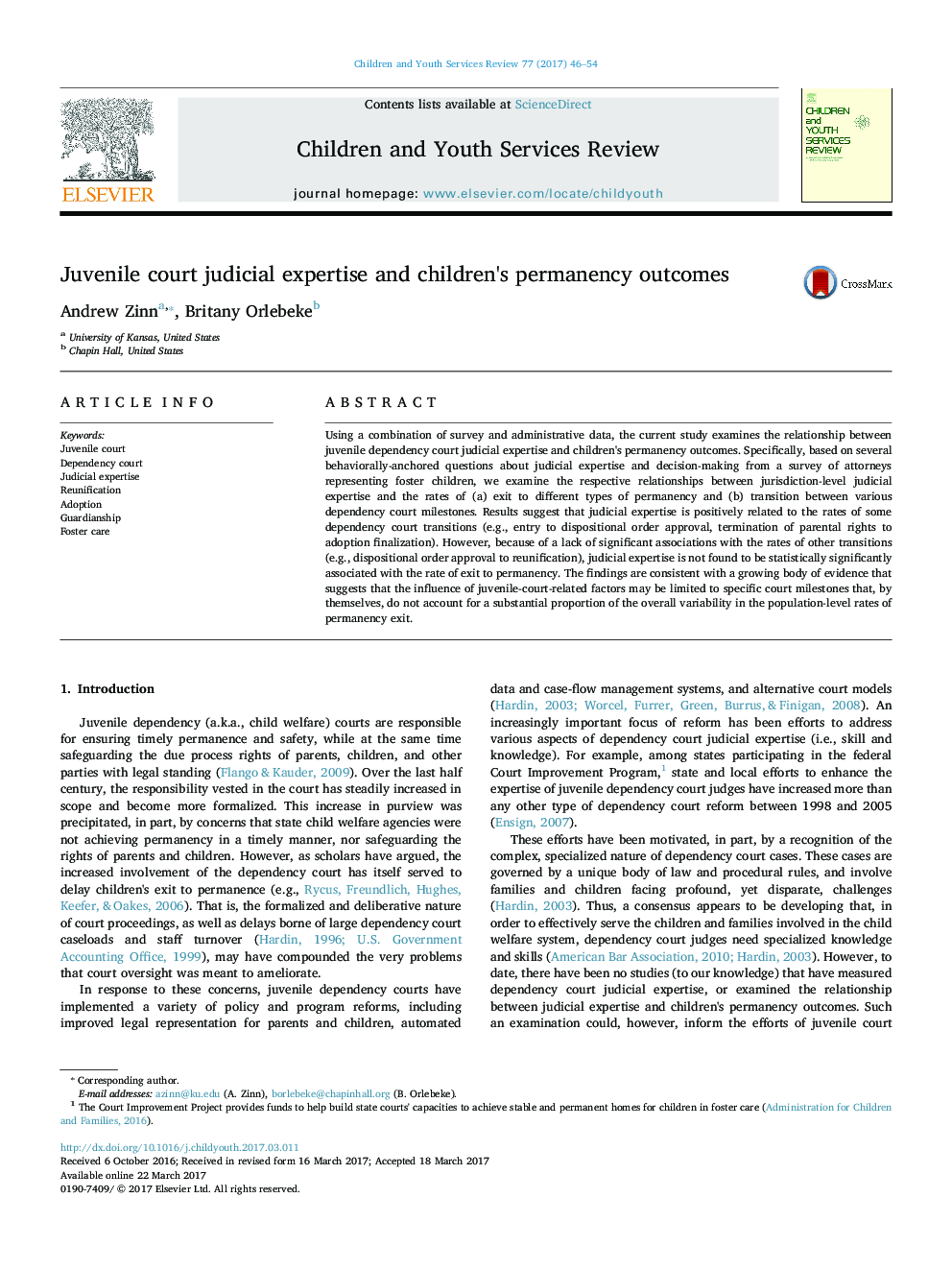| Article ID | Journal | Published Year | Pages | File Type |
|---|---|---|---|---|
| 4936449 | Children and Youth Services Review | 2017 | 9 Pages |
Abstract
Using a combination of survey and administrative data, the current study examines the relationship between juvenile dependency court judicial expertise and children's permanency outcomes. Specifically, based on several behaviorally-anchored questions about judicial expertise and decision-making from a survey of attorneys representing foster children, we examine the respective relationships between jurisdiction-level judicial expertise and the rates of (a) exit to different types of permanency and (b) transition between various dependency court milestones. Results suggest that judicial expertise is positively related to the rates of some dependency court transitions (e.g., entry to dispositional order approval, termination of parental rights to adoption finalization). However, because of a lack of significant associations with the rates of other transitions (e.g., dispositional order approval to reunification), judicial expertise is not found to be statistically significantly associated with the rate of exit to permanency. The findings are consistent with a growing body of evidence that suggests that the influence of juvenile-court-related factors may be limited to specific court milestones that, by themselves, do not account for a substantial proportion of the overall variability in the population-level rates of permanency exit.
Related Topics
Health Sciences
Medicine and Dentistry
Perinatology, Pediatrics and Child Health
Authors
Andrew Zinn, Britany Orlebeke,
